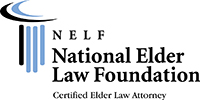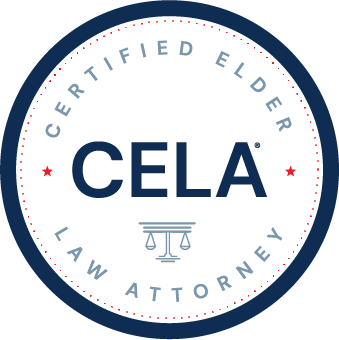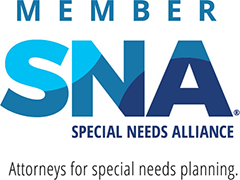The Tax Court in [Chang v. Commissioner, T.C. Summ. Op. 2024-18 (Sept. 16, 2024)] allowed a taxpayer to deduct legal and professional expenses incurred in the defense of a criminal case involving business activities. The taxpayers were a husband and wife who were members of a church. The husband was in charge of the church’s finances. The husband set up two entities: a tax-exempt non-profit and a for-profit LLC. Both entities were engaged in real estate activities. In 2016, the husband was indicted on multiple criminal charges, including wire fraud and money laundering, related to transactions involving the church, the two entities he formed, and his personal accounts.
Firm News
Supplemental Security Income (SSI) is a federal public assistance program that offers financial support to people who are disabled and living on limited resources. To qualify for SSI, an individual must have income and assets that are under a certain threshold that the SSA specifies. A person with a disability seeking SSI must also have an impairment that falls under the SSA’s strict definition of disability.
Thanks to the SNA Publications Committee, we’re now offering this new SNA handbook to help guide individuals with special needs as they transition into adulthood. You can find the new handbook here.
This post was authored by SNA member Sally L. Schoffstall, CELA. She is the founding member of the law firm Schoffstall Elder Law, LLC, and focuses her practice in the areas of elder and special needs planning law, guardianship, estate planning, and estate administration.
When you are the parent or guardian of a child with special needs, talking to educators about the best way to support your child’s learning journey through an Individualized Education Plan (IEP) can feel daunting. Approaching these meetings prepared and informed is crucial to ensure your child receives the necessary support. If this is your first time navigating this process, the following contains information to help you enter the meeting with a greater understanding of what to expect and why you may opt to seek out additional assistance.
This post was authored by SNA member Beth C. Manes, Esq., Co-Founder and Partner at Manes & Weinberg Special Needs Lawyers, LLC. in Westfield, NJ, and Denise Gackenheimer Verzella, a Senior Associate with her firm. An SNA member since 2022, Beth focuses her practice on the areas of Special Education Law, Special Needs Planning, Guardianships and Estate Planning.
Under Rule 62 of the Colorado Rules of Probate Procedure (“Rule 62”), a guardian or conservator of a minor or an incapacitated person (the “protected person”) must obtain court approval of a proposed settlement of the ward’s claim. Rule 62 details the requirements of the Petition for Approval of a Settlement. This article will outline the requirements for filing a petition under Rule 62.
More than half a million people receive Medicaid services in Colorado. Medicaid services cover a variety of programs including payment for long term care, in home care services and health insurance through Health First Colorado. The services paid by Medicaid are critical to many low income and disabled individuals. Due to the programs complexity it is possible to not be aware that you are receiving Medicaid benefits.
Now that Joe Biden has been sworn in as President and a 50/50 split in the Senate with the Democrats holding the tying vote, many of my clients are concerned about future adverse tax legislation. The most mentioned tax legislation proposed by President Biden includes the reduction of the current estate tax exemption of $11,580.00 to $5,000,000, an increase of the capital gain rate which will tax long-term capital gains at higher rates than ordinary income rates for high income tax filers, and the elimination of the stepped-up tax basis rules that apply to certain property received from a decedent[1]. Many high income and high net worth individuals will be adversely impacted if any of these tax proposals are enacted into law.
Also known as Psychiatric Advance Directive or PAD
Families have historically struggled to provide assistance to a family member with severe mental health behavioral problems such as paranoid schizophrenia , bi polar disorder or any other mental health issue typically requiring medication to manage .Most family members with these diagnoses can be effectively treated with proper medication. Unfortunately, many individuals stop taking their medications for a variety of reasons and can become suicidal, homeless, violent or incarcerated. Families are left with few legal options to provide assistance to obtain medical treatment for their loved one.
The following article is authored by Rebeca Kueny and published by Special Needs Alliance. Please follow the link below for information about spotting and avoiding COVID-19 scams.
Bradley J. Frigon was recently quoted in a blog about the new SECURE act and it's effect on Children with Disabilities. The blog covers the SECURE act and how it improves upon the old "Kiddie" tax that hurt children with disabilities. The blog also includes information about the IRA stretch provision and how to take advantage of it. Please visit the link below the read the full text:
From first hand experience I can attest to the merits of the End of Life Options Act aka Medical Aid in Dying (MAID). It is a workable process to exercise your end of life right should you choose to. You don’t have to agree with it, you don’t have to ever consider exercising it but for those that do the Act has processes and procedures that guard against misuse and abuse.
A trust created by a family may go on for several generations. What makes sense now or how the trust is structured may not make sense for the next generation. There can be many events that require a trust to be modified after the original creators pass away. Changes in the law, change in circumstances, change in family structure, technology changes, etc., all of these events can make a trust less effective than originally contemplated. This is especially true for a family with a special needs member.
Every once in a while, I make a point to report on an important court decision that has a significant impact on estate and trust planning. In the spring of 2018, the Colorado Supreme Court made such a decision in a case by the name of Sandstead-Corona v. Sandstead (“Sandstead”). The ruling by the Court greatly expanded a probate court’s jurisdiction or control over property that would normally pass outside of probate such as joint tenancy accounts, payable on death accounts and other property or accounts with a specific beneficiary designation. Prior to Sandstead, it was very clear that a joint account, payable on death account, or a beneficiary designation passed outside of probate and the terms of the Will and went directly to the surviving joint tenant or designated beneficiary.
What does it mean?
Until the passage of this Act, a special needs trust could not be established by the disabled beneficiary themselves. Someone other than the disabled person had to establish the trust: the assumption being that a disabled individual lacked the mental ability to establish a trust for their own benefit. Obviously, a glaringly incorrect assumption about individuals with disabilities. During my NAELA (National Academy of Elder Law Attorneys) presidency, and right up to the passage of the Act – NAELA has been instrumental in keeping this legislation in the forefront of necessary and important special needs change. We celebrate the Special Needs Trust Fairness Act today.
Click here to see a brief description of the Act.
Tim Turner worked with his financial advisors and attorneys to make sure his children received the balance of his retirement funds when he died. Tim died of old age in 2008.
Click here to read the Wall Street Journal article "When the Power of Attorney Lacks Power" dated June 13, 2016.
One area that causes a lot of confusion with regard to Medicaid is the look-back period.
Moving a family member to a nursing home is never a simple process. Finding the right facility, coordinating the move, managing a very sick family member and dealing with all of your emotions will easily overwhelm most of us. To make matters more difficult, the nursing home is asking you to sign a very complicated admissions agreement. Here is what you need to know before you sign.












